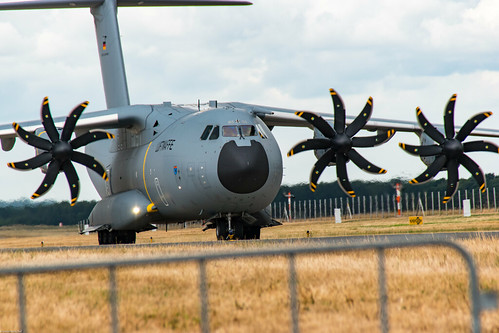Hungary approves Sweden joining Nato after months of delays
NATO #NATO

Hungary’s parliament has approved Sweden’s Nato accession nearly two years after the historically neutral country applied to join the western military alliance, bringing to an end months of diplomatic wrangling.
Speaking after the vote in Budapest on Monday, the Swedish prime minister, Ulf Kristersson, hailed “a historic day”.
“The parliaments of all Nato member states have now voted in favour of Swedish accession to Nato. Sweden stands ready to shoulder its responsibility for Euro-Atlantic security,” he said.
At a press conference later, he described the move as a homecoming for the country, which ditched two centuries of neutrality and military non-alignment when it applied to join the military alliance in 2022 after Russia’s invasion of Ukraine.
“Sweden now leaves 200 years of neutrality and alliance-independence behind us. It’s a big step, which we will take seriously, but also a very natural step … Nato membership means that we are coming home to a large number of democracies working together for peace and freedom and a very successful cooperation.”
It was also a landmark moment for the Nordic region, he said, whose other countries are already in Nato. “When Sweden becomes a Nato member, the Nordics will for the first time in 500 years have a shared defence,” he said.
Jens Stoltenberg, the outgoing Nato secretary general, said the move, which will see Sweden become the 32nd Nato ally, would “make us all stronger and safer”.
The vote followed a meeting on Friday between Kristersson and his Hungarian counterpart, Viktor Orbán, in which they agreed to put aside their differences, saying they were “prepared to die for each other”.
The two countries signed a new military agreement during a warm yet tightly stage-managed joint press conference in the Hungarian capital, during which Sweden promised to sell four new Gripen planes to add to the 14 Hungary has previously bought.
Turkey gave its approval to the Nordic country’s Nato ratification last month, leaving Hungary the last remaining country to do so – despite assurances from Orbán that it would not be the final Nato member to sign.
Sweden applied to join Nato in May 2022, at the same time as Finland, in a historic shift in its security policy.
The former prime minister Magdalena Andersson, who started the process, welcomed Hungary’s decision on Monday, telling the broadcaster SVT that it would “strengthen our security”.
Andersson’s decision to apply for membership marked a dramatic departure from the Social Democrats’ previously vehement opposition to joining. Commenting on her party’s U-turn, the politician, now in opposition, said Russia’s invasion had changed her mind.
“Today we can focus on this decision, which is good for Swedish society,” she said. “We cannot go backwards.”
Now that the parliament has approved the move, the decision will be sent to Hungary’s interim president, László Kövér, who will have five days to sign off on it and send it to the US state department in Washington.
Under Nato protocol, the US government must be notified of member states’ ratification of a new country. The secretary general invites the new country to accede to the treaty, which is then sent to the US state department, which formally invites them to become a Nato member.
Kristersson said he did not have a date by which the process would be completed.
skip past newsletter promotion
Sign up to Headlines Europe
A digest of the morning’s main headlines from the Europe edition emailed direct to you every week day
Privacy Notice: Newsletters may contain info about charities, online ads, and content funded by outside parties. For more information see our Privacy Policy. We use Google reCaptcha to protect our website and the Google Privacy Policy and Terms of Service apply.
after newsletter promotion
Sweden’s membership process took far longer than that of Finland, its neighbour, due to diplomatic tensions with Nato members Turkey and Hungary. Last summer a series of burnings of the Qur’an in Sweden inflamed tensions with Ankara, while Orbán’s government became embroiled in a public row with Sweden last September over criticism of Hungary’s democracy and teaching in Swedish schools.
Even after Turkey’s parliament gave Sweden the green light, the Hungarian prime minister, who is increasingly known for occupying the position of lone holdout in international agreements involving western allies, was still pushing for further negotiations.
However, after Kristersson’s visit to Budapest last week, Orbán, a rightwing nationalist who has forged close ties with Russia, hailed “a new phase of cooperation between Hungary and Sweden”.
Asked by journalists what had made his country drop its opposition to Sweden joining Nato, Orbán said: “Being members of Nato means that we are prepared to die for each other. It is based on mutual respect. Taking that process at an appropriate pace has been wise.”
Sweden joining Nato means the Baltic Sea will be surrounded by members of the alliance – Finland, Estonia, Latvia, Lithuania, Denmark, Germany and Poland – leading some analysts to nickname it a “Nato sea”.
Moderate Kristersson’s centre-right coalition government, backed by the far-right Sweden Democrats, has been grappling with the Nato issue ever since taking over from Andersson’s government in 2022.
Kristersson said on Friday: “We respect each other’s differences and sometimes reach good compromises. Now we are also entering into joint Nato cooperation with precisely the attitude of being prepared to fight for each other in a dangerous time.”
Asked who should take credit for Sweden’s Nato membership – himself or Andersson – Kristersson said it was a joint achievement: “We have done this journey together,” he said.
While he was pleased about the outcome, it was not a celebratory moment, he said: “I am happy, but festivities can come when Ukraine has its freedom.”